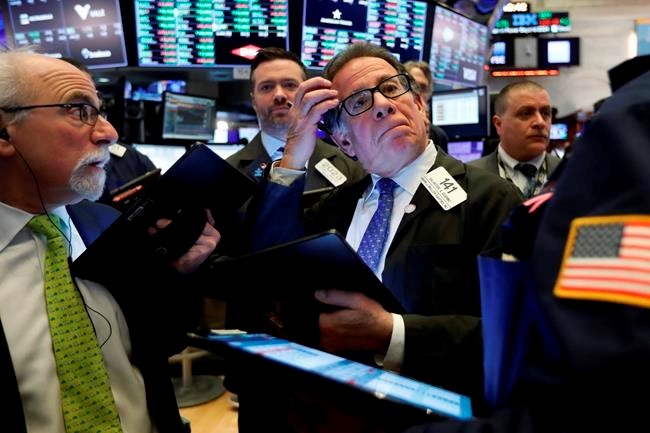TOKYO β European stock markets edged up Wednesday after Asian shares mostly declined, as governments were ramping up aid for economies reeling from the virus outbreak.
France's CAC 40 gained 0.8% to 4,673, while Germany's DAX rose 0.6% to 10,537. Britain's FTSE 100 added 0.4% to 5,984. U.S. shares were set to open lower with Dow futures down 2.5% and S&P 500 futures 2.6% lower.
The Bank of England cut its key interest rate by half a percentage point to 0.25% and offered financial liquidity measures in response to the outbreak of the COVID-19 virus. The central bank said the move would βhelp support businesses and consumer confidence at a difficult time.β
Countries are shifting into damage-control as infections spread, prompting sweeping controls on travel, closures of schools and cancellations or postponements of sports events and many other public activities.
Italy's government announced $28 billion in financial support for health care, the
Australia announced a $1.6 billion virus-fighting package and reportedly plans an additional $6.5 billion in economic stimulus. Japan and Thailand also have announced fresh help for businesses and workers.
Still, many investors remained cautious.
Japan's benchmark Nikkei 225 lost 2.3% to finish at 19,416.06. Australia's S&P/ASX 200 plunged 3.6% to 5,725.90. South Korea's Kospi shed 2.8% to 1,908.27. Hong Kong's Hang Seng fell 0.6% to 25,231.61, while the Shanghai Composite dipped 0.9% to 2,968.52.
India's market bucked the trend, with the Sensex picking up 0.9% after reopening following a holiday on Tuesday.
βThere is consistent fear about the spread of the coronavirus in the U.S. as well as in Europe,β said Louis Wong of Philip Capital Management.
βInvestors are still worried that those fiscal stimulus packages may not be able to contain the virus outbreak as well as to mitigate the impact on the economy," he said.
A prolonged outbreak is expected to bring on a global recession.
While they won't cure illnesses or get quarantined workers back into factories, spending and stimulus programs would put cash into the hands of households and businesses while health experts try to corral the virus.
For most people, the new coronavirus causes only mild or moderate symptoms, such as fever and cough. For some, especially older adults and people with existing health problems, it can cause more severe illness, including pneumonia.
The vast majority of people recover from the new virus. According to the World Health Organization, people with mild illness recover in about two weeks, while those with more severe illness may take three to six weeks to recover. In mainland China, where the virus first exploded, more than 80,000 people have been diagnosed and more than 58,000 have so far recovered.
But because the virus is new, experts can't say for sure how far it will ultimately spread. That has investors worried about a worst-case scenario for corporate profits and the economy, where factories and supply chains are shut around the world due to quarantines and people stay huddled at home instead of working or spending.
Meanwhile, the price of oil fell again over a price war between Saudi Arabi and Russia. Crude plunged 25% on Monday after the Saudis said they would slash their selling prices and on Monday the country announced it would increase production to a new record high.
Brent crude, the international standard, fell $1.35 a barrel to $35.87 per barrel. It rose $2.86 on Tuesday. Benchmark U.S. crude fell $1.20 a barrel to $33.16 a barrel, having risen $3.23 the day before.
The dollar fell to 104.74 Japanese yen from 105.64 yen on Tuesday. The euro rose to $1.1325 from $1.1283.
___
Katie Lam in Hong Kong contributed.
___
The Associated Press receives support for health and science coverage from the Howard Hughes Medical Instituteβs Department of Science Education. The AP is solely responsible for all content.
Yuri Kageyama, The Associated Press



